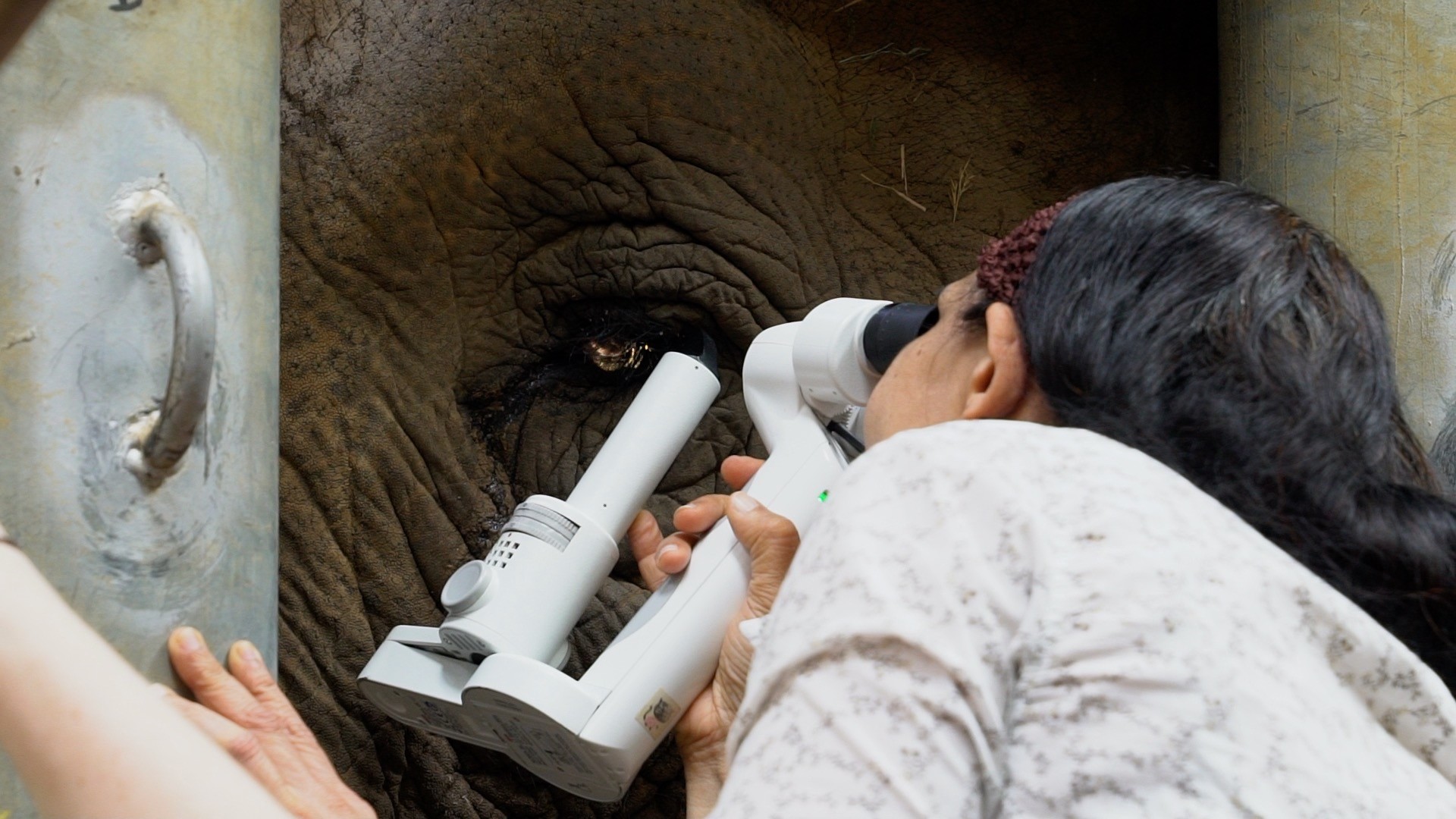Eyes Wide Open For Melbourne Zoo's Oldest Elephant
It's well known that elephants have long memories and that's certainly the case for Melbourne Zoo’s oldest elephant and herd matriarch, Mek Kapah.
The 48-year-old Asian elephant has learnt how to participate in her own health care, responding to keeper directions
and standing still while she has her eyes examined, thanks to careful relationship building and training with her
keepers and vets.
Mek Kapah’s keepers suspected the ageing elephant’s eyesight was becoming a bit blurry, so organised the
examination by Veterinary Ophthalmologist, Dr Anu O’Reilly.
“Our keepers have noticed that, for a little while, she has been showing signs that she might be having some vision
problems,” said Melbourne Zoo Veterinarian Dr Kate Bodley, who supervised the examination. “Very mild signs, but
they’ve picked them up.”
After a thorough examination, Dr O’Reilly discovered Mek Kapah is experiencing the early symptoms of lens changes,
which affects the eye’s ability to shift focus - typically, a result of ageing in both animals and humans.

“We did find that she had some very mild, very early changes to the lenses of both eyes that would explain why she
has been showing us some very mild signs of vision change,” said Dr Bodley.
“She’s an older elephant and lens changes frequently happen in older animals, which just means her vision’s not as
clear, and things are possibly looking a little bit fuzzy.
“If she’s in an area where the light is low, or if she is doing something and not concentrating, she might find that her
judgement of depth might be not as good as it was.”
The diagnosis was considered “a good result” by Dr O’Reilly and Dr Bodley, who said that Mek Kapah doesn’t require
specific treatment at the moment. However, keepers will modify her environment to make things easier, starting with
white paint to mark certain areas in her training spaces, removing the risk of Mek Kapah bumping into anything.
The matriarch’s eyes will also be checked every three months to see how things are progressing.
Asian Elephants were once widespread throughout Asia, but are now classified as endangered by the International
Union for Conservation of Nature’s Red List, with only an estimated 40,000 remaining in the wild. Zoos Victoria’s
‘Don’t Palm Us Off’ campaign aims to raise awareness about unsustainable palm oil production in the habitat of the
Asian Elephant, advocating for the clear labelling of palm oil on products in Australia.
